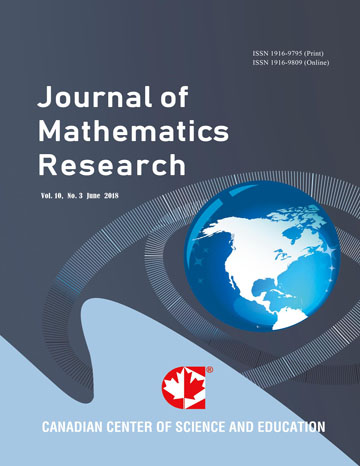Mathematical Modeling: Issues and Challenges in Mathematics Education and Teaching
- Reuben S. Asempapa
- Derek J. Sturgill
Abstract
Mathematics education researchers and policy documents in the United States have expressed the need to improve the teaching and learning of mathematical modeling at the K–12 levels so that students can apply their knowledge of mathematics to solve real-world situations. Unfortunately, most practicing teachers (PTs) and preservice teachers (PSTs) acquire didactical and pedagogical styles that do not support effective modeling practices. To investigate these dilemmas, this study examined PTs’ pedagogical experiences in and PSTs’ perspectives on mathematical modeling practices. Participants included 62 PTs and 18 PSTs from a Midwestern region of the United States. Data originated from questionnaire items and open-ended questions, which were analyzed quantitatively and qualitatively. Varied participants’ ideas on mathematical modeling practices were identified, recorded, and summarized. Results indicated that most of these PTs and PSTs have little to no experiences with mathematical modeling practices and associated pedagogies. Such results along with a supplemental discussion have implications for teacher education programs and professional development centered on mathematical modeling education.
- Full Text:
 PDF
PDF
- DOI:10.5539/jmr.v11n5p71
Index
- ACNP
- Aerospace Database
- BASE (Bielefeld Academic Search Engine)
- Civil Engineering Abstracts
- CNKI Scholar
- DTU Library
- EconPapers
- Elektronische Zeitschriftenbibliothek (EZB)
- EuroPub Database
- Google Scholar
- Harvard Library
- IDEAS
- Infotrieve
- JournalTOCs
- MathGuide
- MathSciNet
- Open policy finder
- RePEc
- ResearchGate
- Scilit
- Technische Informationsbibliothek (TIB)
- The Keepers Registry
- UCR Library
- Universe Digital Library
- WorldCat
Contact
- Sophia WangEditorial Assistant
- jmr@ccsenet.org
